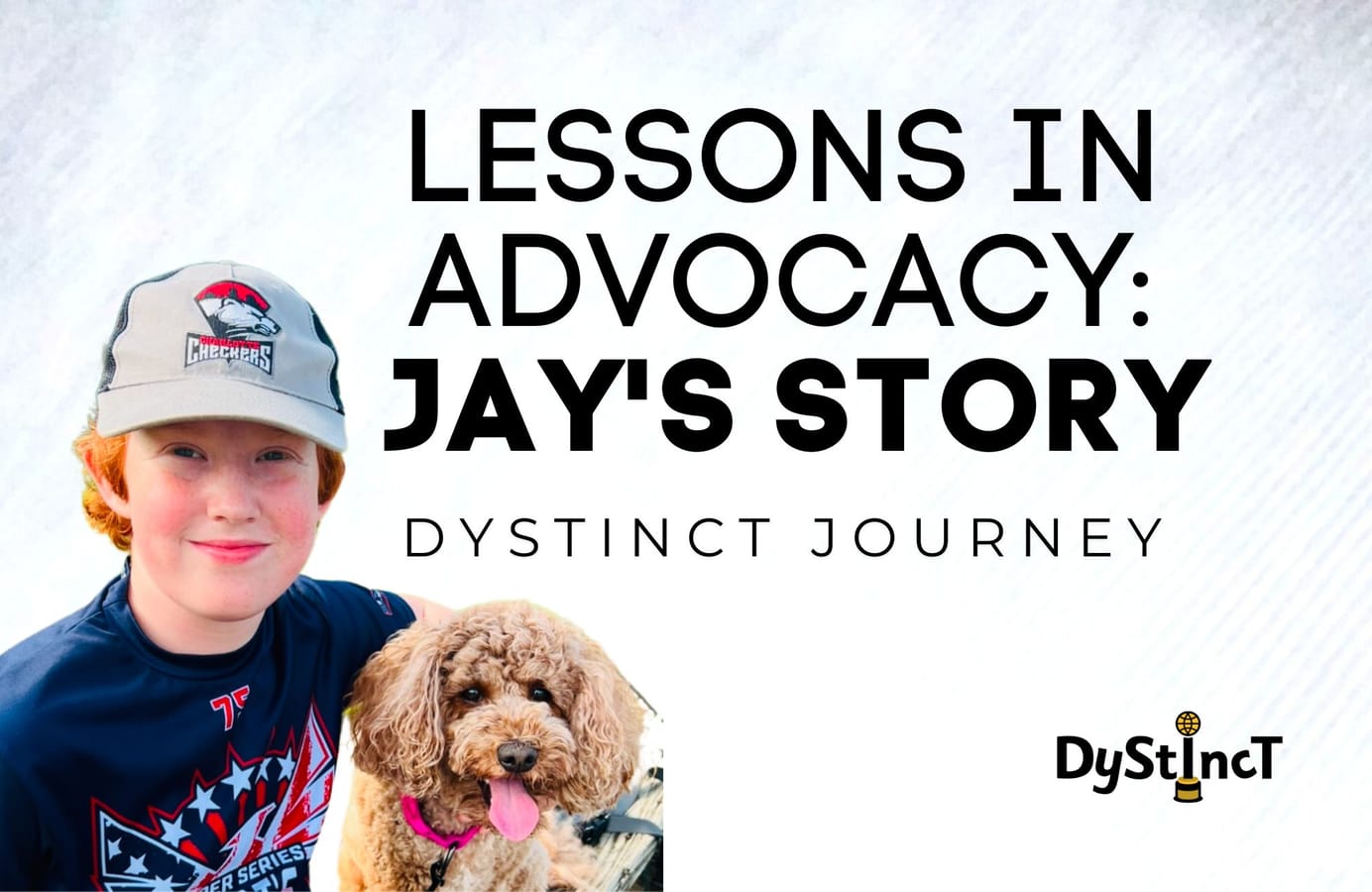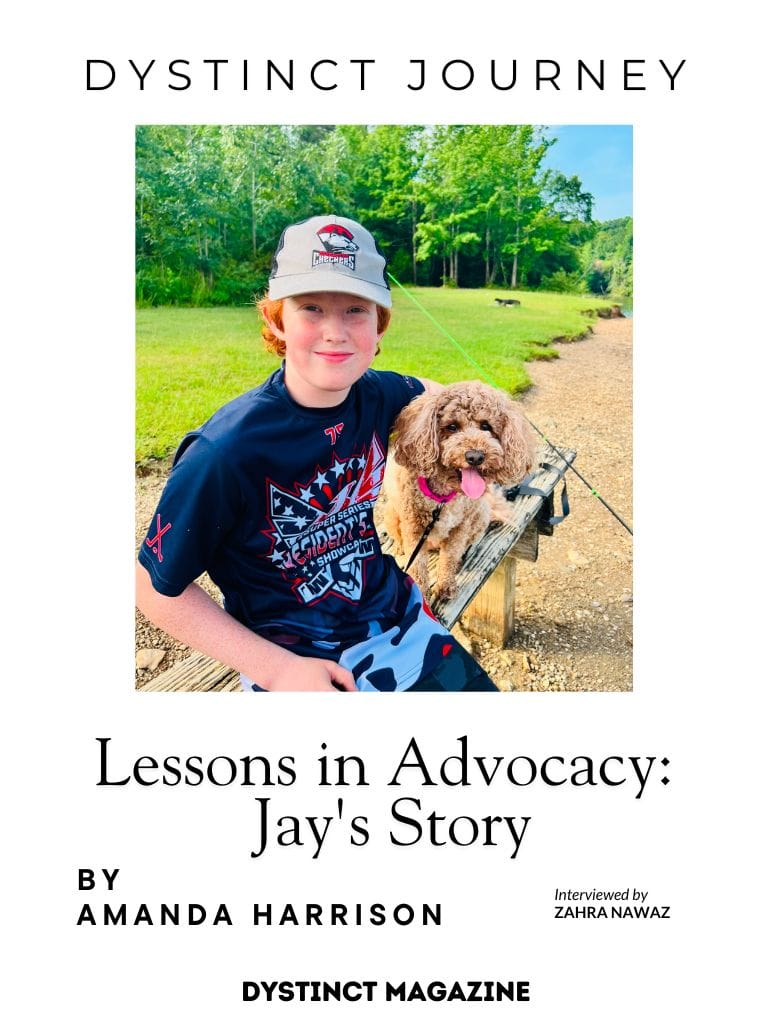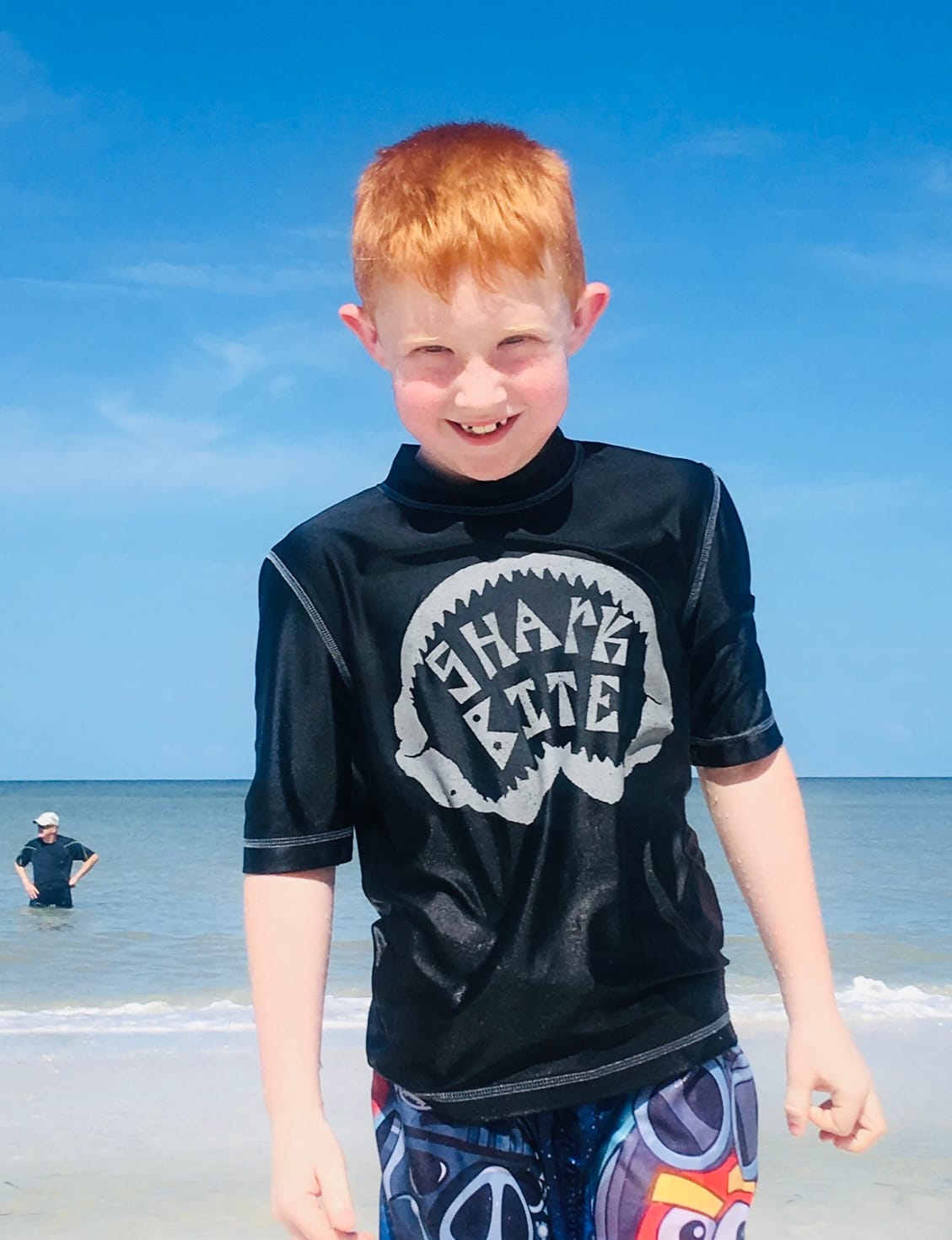
Issue 25: Lessons in Advocacy: Jay's Story
Amanda Harrison shares her son Jay’s journey from struggling with undiagnosed dyslexia and school anxiety to finding confidence and success through intensive remediation, private education, and a passion for golf, while highlighting the challenges and triumphs of advocating for his right to read.

The Beginning
The Beginning
Jay was a very happy, 'busy' child - he was quick to smile, fun-loving and rambunctious, hitting developmental milestones as expected. Jay is our only child. As a family, we read bedtime stories every night. We also sang alphabet songs and connected the sounds of the alphabet to each individual letter – we did this religiously from about 6 months old. By the time Jay turned 1, we realized his language skills didn't seem to be developing as they should - the few words he did use were very unclear and difficult to understand. This created a lot of frustration for him (and us). Jay understood everything we said to him and was obviously a smart, intelligent child, but his speech was not developing naturally.
When Jay was about 2, a chance conversation with another parent led us to have Jay assessed under the early intervention program offered in our state. Jay was evaluated and diagnosed with a speech and language delay, which made him eligible for Pre-kindergarten speech therapy. By the time Jay started kindergarten he had been receiving speech therapy for 2 years. Jay would continue in speech therapy for an additional 4 years.
First Grade
First Grade
In first grade, we realized that Jay was struggling academically in the classroom. We knew he was aware of his letters and the sounds they made, but he did not seem to be able to connect the two. When he did read, it was very, very slow and laborious, and he couldn't remember what he had just read. Weekly spelling tests were awful – we would work on the word list 3 or 4 times every day for a full week prior to the test. Usually, he would score well but promptly forgot how to spell the same words a day later. He found it difficult to write, had an odd pen grip and would complain of his hand hurting when doing so. I distinctly remember raising concerns with Jay's teacher, who told me not to worry. I also met with the school speech pathologist, who told me that this was very usual with boys: that Jay was doing fine and that it would 'click' eventually. I trusted them as professionals and believed they had Jay's best interests at heart.

Second Grade
Second Grade
In second grade, Jay was still struggling, and again, I raised my concerns to his new teacher, and once more, I was reassured that everything was fine. I could see Jay's anxiety rising, and he had developed school avoidance behaviors. Jay would tell me he had stomach aches almost daily. I recall his teacher sent a note informing us Jay was going to the bathroom several times in an hour. After visits to a doctor and a referral to a specialist, they couldn't find anything wrong. Years later, Jay would tell me he would sit in the bathroom so he didn't need to read out loud. Homework was a horrible experience for us, and it usually ended in meltdowns and crying on most days. As a family, we were stressed and desperate for answers.
Years later, Jay would tell me he would sit in the bathroom so he didn't need to read out loud.
Third Grade
Third Grade
In third grade, my intuition told me I was missing something. I became a detective, reading, researching, googling and desperately hunting for the 'missing piece.' Eventually, I stumbled across a webinar by Susan Barton on the website 'Bright Solutions for Dyslexia'. In the presentation, Ms. Barton referenced the classic warning signs of dyslexia, listing each red flag in developmental order. Notably, she said that if a child exhibits 3 or more of the signs, dyslexia should be a consideration.
Jay had 16 of the warning signs.
- delayed speech
- mixing up the sounds and syllables in long words
- constant confusion of left versus right
- late establishing a dominant hand
- difficulty learning to tie shoes
- trouble memorizing their address, phone number, or the alphabet
- a close relative with dyslexia
- dysgraphia (slow, non-automatic handwriting that is difficult to read)
- extreme difficulty learning cursive
- slow, choppy, inaccurate reading: - guesses based on shape or context - skips or misreads prepositions (at, to, of) - ignores suffixes - can't sound out unknown words
- terrible spelling
- often can't remember sight words (they, were, does) or homonyms (their, they're, and there)
- difficulty telling time with a clock with hands
- trouble with math - memorizing multiplication tables - memorizing a sequence of steps - directionality
- when speaking, difficulty finding the correct word - lots of "whatyamacallits" and "thingies" - common sayings come out slightly twisted
- dreads going to school - complains of stomach aches or headaches - may have nightmares about school.
By this time, Jay had been in special education for nearly 5 years - no one had ever mentioned the genetic liability for dyslexia or seemingly noticed any of the common red flags. I felt tremendous guilt for not knowing. In hindsight, I feel ridiculous, considering there is neurodiversity on both sides of our family. On September 15th 2017, I sent the first email to Jay's school (officially) asking for help. I trusted the school and naively expected them to be proactive about helping him. At this point, we had no idea of what was ahead - our fight would continue for over 2 long years. We spent multiple hours in meeting after meeting trying to convince 'the team' that Jay needed help. We were told, 'Jay just needs repeated practice' or 'Jay doesn't stand out as a student who needs significant support.' No matter what evidence we presented or how much we begged, the school refused to evaluate Jay or look deeper into our suspicion of dyslexia.
This post is for paying subscribers only
SubscribeAlready have an account? Log in


